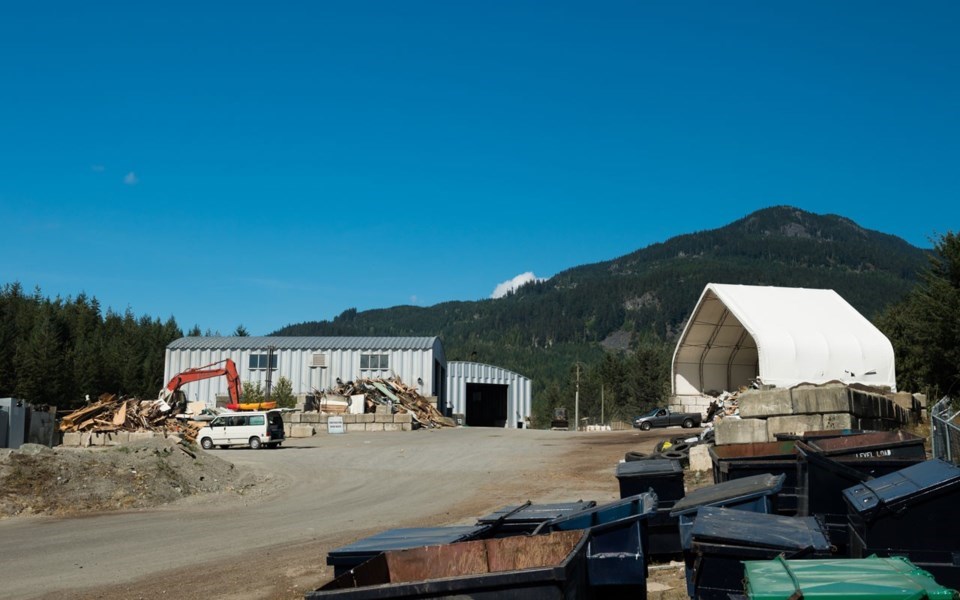Tipping fees at the Whistler Transfer Station are set to increase after council gave first three readings to a related bylaw on Nov. 2.
The new fees impact disposal of biosolids ($215/tonne, up from $185); clean land clearing wood waste ($110, up from $100); dirty wood waste ($160, up from $150); bulky items ($210, up from $190); landfill waste ($210, up from $190); construction and demolition waste ($210, up from $190); the banned materials surcharge ($475, up from $425); organic food scraps or food waste ($80, up from $75); gypsum board ($360, up from $310); and invasive species ($40, up from $30).
“To incentivize waste producers’ efforts to divert waste and optimize revenue generation, it is necessary to update tipping fees levied at the transfer station periodically,” said waste operations coordinator Ian McKeachie at the Nov. 2 council meeting, adding that tipping fees were last increased at the end of 2020.
Increases also help Whistler “to stay in line with other corridor communities and ensure a financial reserve is maintained to finance future improvements at waste facilities,” he added.
The higher fees will come into effect Jan. 1, 2022.




